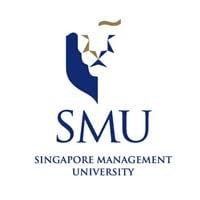
دانلود رایگان پایان نامه چابکی مدیریتی، فرهنگی، هوشی، بازاریابی
فصل 1 مقدمه
فصل 2 بررسی ادبیات
2.1. چابکی بازاریابی
2.1.1. مفهوم چابکی بازاریابی
2.1.2. سوابق چابکی بازاریابی
2.1.3. نتایج چابکی بازاریابی
2.2. هوش فرهنگی
2.2.1. مفهوم هوش فرهنگی
2.2.2. پیشینیان هوش فرهنگی
2.2.3. نتایج هوش فرهنگی
2.3. TMT و نتایج در سطح شرکت
2.5. فصل 3 چارچوب نظری
3.1. هوش فرهنگی مدیریتی و چابکی بازاریابی
3.2. اثر تعدیل کننده محیط های داخلی و خارجی
3.3. چابکی بازاریابی و قابلیت نوآوری شرکت های تابعه خارجی
3.4. نقش میانجی چابکی بازاریابی فصل چهارم طرح و روش تحقیق
4.1. نمونه و جمع آوری داده ها
4.2. معیارها
4.2.1. متغیرهای کلیدی
4.2.2. تعدیل متغیرها
4.2.3. متغیرهای کنترل
فصل 5 نتایج
5.1. اعتبار و اعتماد
5.2. سوگیری روش رایج
5.3. علیت معکوس
5.4. آمار توصیفی و همبستگی
5.5. آزمون فرضیه ها فصل
6 بحث و نتیجه گیری
6.1. نتیجه
6.2. مفاهیم نظری
6.3. مفهوم عملی
6.4. محدودیت و مطالعات آینده
منابع
چکیده پایان نامه
هدف این پایان نامه بررسی رابطه بین هوش فرهنگی مدیریتی، چابکی بازاریابی و قابلیت نوآوری شرکت های تابعه خارجی است. بر اساس نظریه سطوح بالا (UET)، من استدلال می کنم که هوش فرهنگی مدیریتی چابکی بازاریابی را تسهیل می کند. علاوه بر این، چابکی بازاریابی به طور مثبت با قابلیت نوآوری شرکت های تابعه خارجی مرتبط است. این مطالعه با استفاده از دادههای بررسی دو موجی 110 شرکت تابعه خارجی در چین، مدل نظری را تأیید کرد. مشخص شد که هوش فرهنگی مدیریتی با چابکی بازاریابی و چابکی بازاریابی با قابلیت نوآوری شرکت های تابعه خارجی ارتباط مثبتی دارد. جو یادگیری سازمانی، رقابت بازار، آشفتگی بازار و پیچیدگی بازار اثرات تعدیل کننده مثبتی بر رابطه بین هوش فرهنگی مدیریتی و چابکی بازاریابی دارند. هدف این پایان نامه غنی سازی تحقیقات در زمینه تئوری سطوح بالا، هوش فرهنگی، چابکی بازاریابی و قابلیت نوآوری و ارائه مراجع برای شرکت های تابعه خارجی برای بهبود چابکی بازاریابی و قابلیت نوآوری است.
ABSTRACT OF DISSERTATION
This dissertation aims to investigate the relationship between managerial cultural intelligence, marketing agility and innovation capability of foreign subsidiaries. Based on upper echelons theory (UET), I argue that managerial cultural intelligence facilitates marketing agility. Moreover, marketing agility is positively associated with innovation capability of foreign subsidiaries. Using two-wave survey data of 110 foreign subsidiaries in China, this study verified the theoretical model. It is found that managerial cultural intelligence is positively associated with marketing agility, and marketing agility is positively related to innovation capability of foreign subsidiaries. Organizational learning climate, market competition, market turbulence, and market complexity have positive moderating effects on the relationship between managerial cultural intelligence and marketing agility. This dissertation aims to enrich the research on the upper echelons theory, cultural intelligence, marketing agility and innovation capability, and provide references for foreign subsidiaries to improve marketing agility and innovation capability.
Acknowledgements
Chapter 1 Introduction
Chapter 2 Literature Review
2.1. Marketing agility
2.1.1. Concept of marketing agility
2.1.2. Antecedents of marketing agility
2.1.3. Outcomes of marketing agility
2.2. Cultural intelligence
2.2.1. Concept of cultural intelligence
2.2.2. Antecedents of cultural intelligence
2.2.3. Outcomes of cultural intelligence
2.3. TMT and firm-level outcomes
2.5. Chapter 3 Theoretical Framework
3.1. Managerial cultural intelligence and marketing agility
3.2. Moderating effect of internal and external environments
3.3. Marketing agility and innovation capability of foreign subsidiaries
3.4. Mediating role of marketing agility
Chapter 4 Research Design and Methodology
4.1. Sample and data collection
4.2. Measures
4.2.1. Key variables
4.2.2. Moderating variables
4.2.3. Control variables
Chapter 5 Results
5.1. Validity and reliability
5.2. Common method bias
5.3. Reverse causality
5.4. Descriptive statistics and correlations
5.5. Hypotheses testing
Chapter 6 Discussion and conclusion
6.1. Conclusion
6.2. Theoretical implications
6.3. Practical implications
6.4. Limitation and future studies
References
